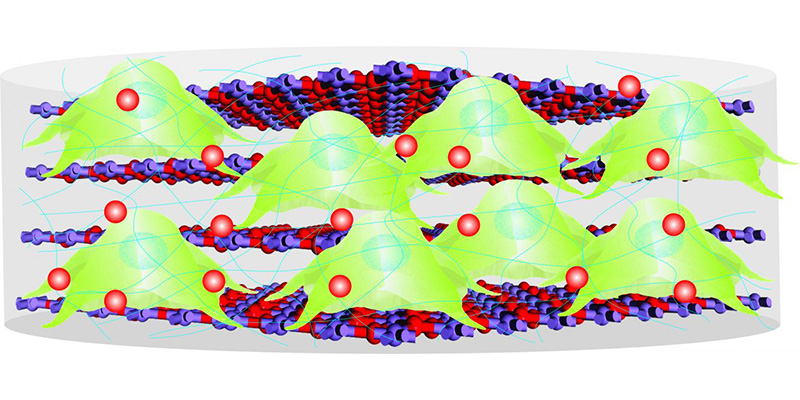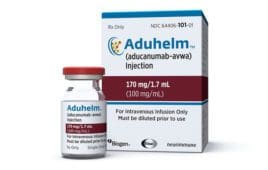
A biodegradable inorganic nano-scaffold, consisting of stem cells, proteins and drugs, for advanced stem cell therapy and drug delivery. Credit: KiBum Lee, Letao Yang and Sy-Tsong Dean Chueng.
Rutgers scientists have created a tiny, biodegradable scaffold to transplant stem cells and deliver drugs, which may help treat Alzheimer’s and Parkinson’s diseases, aging brain degeneration, spinal cord injuries, and traumatic brain injuries.
Stem cell transplantation, which shows promise as a treatment for central nervous system diseases, has been hampered by low cell survival rates, incomplete differentiation of cells and limited growth of neural connections.
So, Rutgers scientists designed bio-scaffolds that mimic natural tissue and got good results in test tubes and mice, according to a study in Nature Communications. These nano-size scaffolds hold promise for advanced stem cell transplantation and neural tissue engineering. Stem cell therapy leads to stem cells becoming neurons and can restore neural circuits.
“It’s been a major challenge to develop a reliable therapeutic method for treating central nervous system diseases and injuries,” said study senior author KiBum Lee, a professor in the Department of Chemistry and Chemical Biology at Rutgers University-New Brunswick. “Our enhanced stem cell transplantation approach is an innovative potential solution.”
The researchers, in cooperation with neuroscientists and clinicians, plan to test the nano-scaffolds in larger animals and eventually move to clinical trials for treating spinal cord injury. The scaffold-based technology also shows promise for regenerative medicine.
SOURCE: Rutgers University
Filed Under: Neurological Disease




